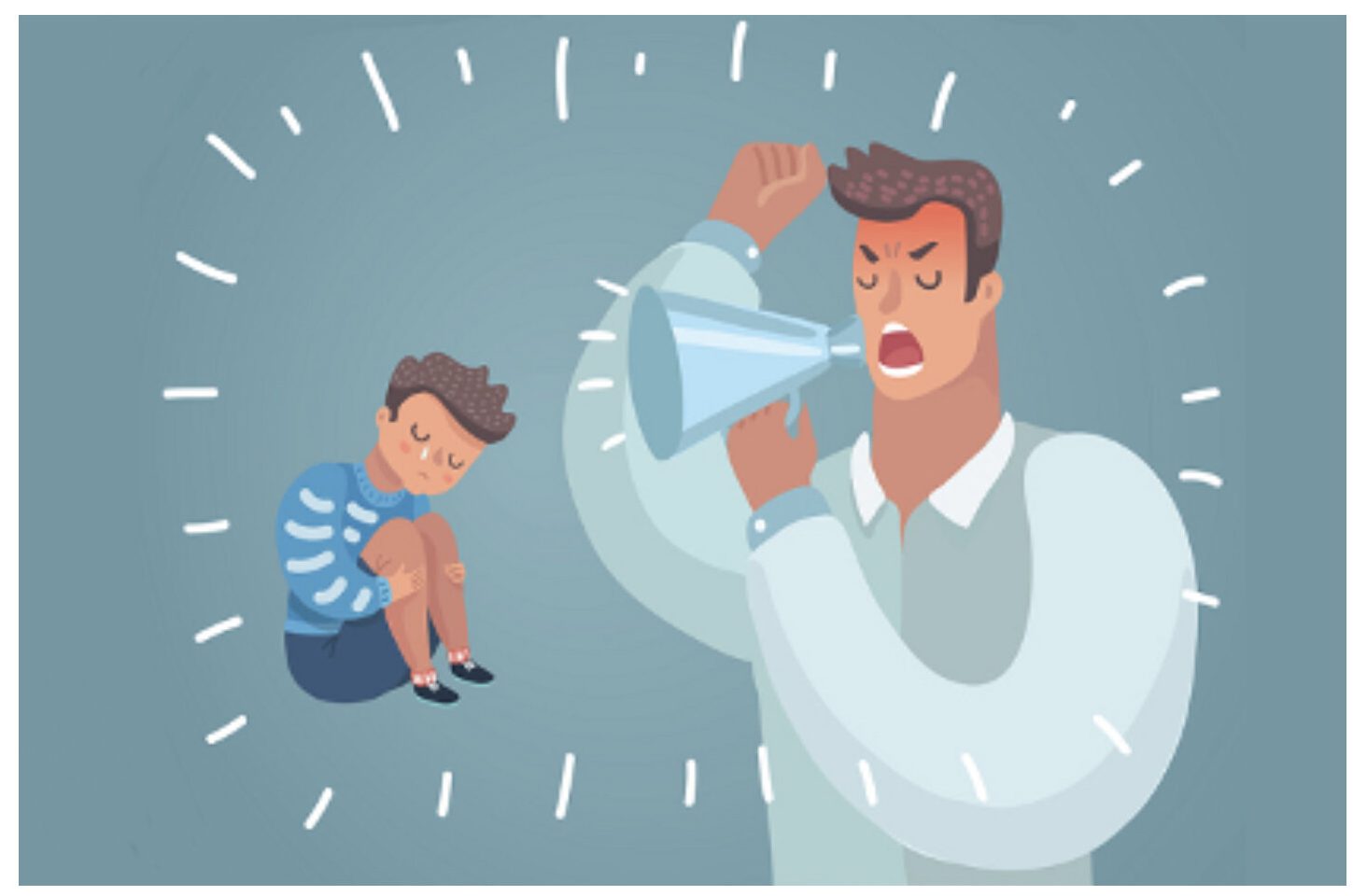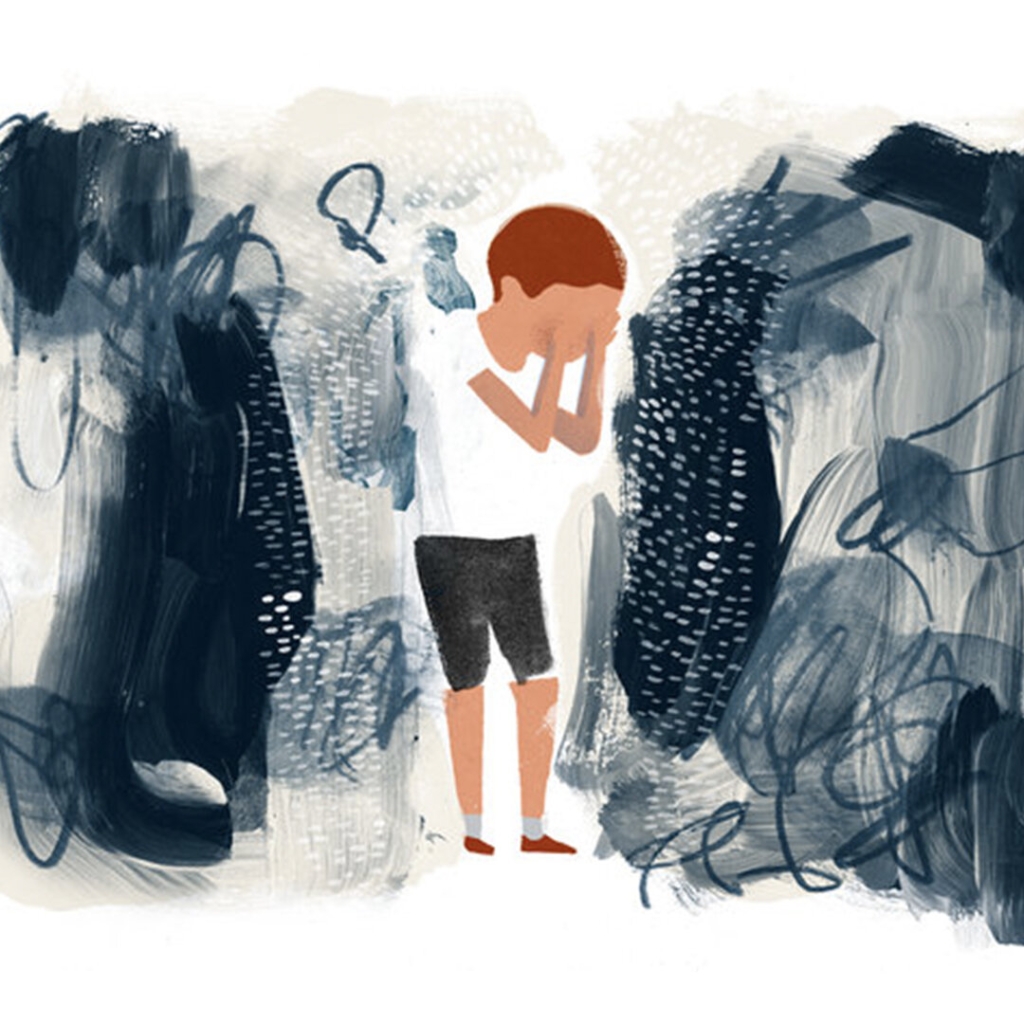“Even if it’s difficult to resist parental pressure, lack (or excess!) of affection and the inability to bond with your parents, it’s important not to get caught in the middle!”
When the term ‘toxic relationship’ is mentioned, we tend to think of the misunderstandings and pressures that can arise in a couple. In reality, toxic relationships are present in many people’s lives, even within the family or between friends.
From early childhood, there is a risk of being exposed to a family environment that is not exactly suitable. Whether it’s misunderstandings between parents, or a desire to provide a child with an education that aspires to perfection, a toxic parent or guardian inevitably influences their children, with repercussions even into adulthood. But what’s the difference between firmness and toxicity when it comes to family and friends?

The abusive parent
Such a situation is easiest to spot with “the naked eye”. The cause of such behavior can be an addiction, a personal frustration, or even a mental disorder. Abuse can take many forms, not just physical. Verbal or behavioral abuse directed at another parent or family member causes “silent suffering” for the child, who is caught in the middle and is forced to watch the abusive scenes in silence, afraid to intervene in any way.
The future adult develops a pronounced distrust in themselves and in others. He finds it very difficult to get attached to strangers or make friends. It is normal that, once subjected to a defective parental relationship, he is afraid of closeness in a couple relationship. Affection is his number one need and he will try to seek it in any type of relationship, romantic or not.
Although it is the most visible form of toxic parenting, it is also the most difficult to intervene in. If you suspect such a case in your circle of acquaintances, first make sure that the victim does not lose themselves. There is also a second extreme of emotional impact. Children can get the wrong message that threats and excessive control can get them what they want. If this happens, they in turn become aggressive and perpetuate the cycle of domestic abuse.
Help your closed ones in this situation by constantly listening to them and encouraging them to talk to you, or to professionals they can contact through special hotlines. From our research, in Romania the only line exclusively for children is Telefonul Copilului. If circumstances worsen, remember that domestic violence is a crime, and should always be reported!
The discouraging parent

Such parents often have (very) high expectations of their children, wanting them to excel in various areas. They try to instill passions and provide them with a multi-faceted education, so that later on they can force their children to follow the path they dictate. Although at first glance such parents might not be labeled as toxic, their relationship with their children is perceived differently: as a strictly professional relationship.
Neither the parent nor the child knows what topics to bring up in their conversations, or focus strictly on self-development. They are educated through constant comparison with others, from school age, or, if parental influence extends into adulthood, even with other coworkers. Discouraging lines such as “How can your colleague get better marks?”, “You’re useless, you do nothing all day!” can also degenerate over time into negative and repetitive remarks about physical appearance.
These children gradually lose self-confidence and come to doubt their own qualities. They are under constant pressure and their lives are too much like a competition. The chances of feeling depressed and insecure about themselves or their desires for the future are high. The fear of confronting their parents makes it difficult for them to back up their own opinions and come up with arguments that cannot be easily dismantled.
It’s important to realize, if you or someone close to you is in such a situation, that it’s okay to “waste time”, and that life doesn’t necessarily have to be planned point by point.

The ‘strict’ (anxious) parent
Few realize that behind the cliché of a ‘strict’ parent (the subject of so many teen movies and memes!), there is actually a prolonged anxiety of parents, sometimes present since the birth of the child. Around 80% of mothers worldwide suffer from postpartum depression. A longitudinal study in the UK, entitled “the Avon Longitudinal Study of Parents and Children” [1,2] shows that these mothers have difficulties in raising children, who in adolescence are likely to experience disorganized/disoriented attachment in relationships (not having a coherent “strategy” for coping with difficult situations [3]), cognitive problems, or even depression.
The best-known type of ‘toxic parent’ acts based on bans and investigations. If in the early part of a child’s life the prohibitions are limited to following a strict and well-planned study program, as the child reaches adolescence, parents want to stop as many dangers as possible.
A strict parent often acts without having a proper justification (haven’t you heard of “because I’m the adult and I know what’s right!”?), without explaining exactly what the danger they want to protect their children from is exactly. Family discussions often end with the parent raising his voice and losing his temper, or exaggerating information to frighten the child and keep him away from temptation. From an early age they are not allowed to make mistakes, and if they do, the seriousness of the consequences they have to face is emphasized and maximized. The world is presented to them as a very bad environment, where everything works on the basis of hidden interests.
Their need to always know what the child is doing and where the child is inevitably leads to the child’s desire to hide and ‘make up’ excuses, which makes it impossible for the parties to get closer.

No matter what type of toxic parenting relationship you’re experiencing, it’s important to know that the behavior you witness is not your fault. Even if it is difficult to resist parental pressure, lack (or excess!) affection and the inability to bond with your parents, it is important not to get caught in the middle.
The first step is always to be aware that there is a problem. Then you can try to address it directly with your parents, talking openly about what’s bothering you and communicating your needs. If you feel that your parents don’t listen or don’t understand you, keep in mind that there are ways to get outside support: for example, you can suggest that your parents attend psychotherapy or family counseling sessions. Once you’ve tried to solve the problem, if you still feel that you’re not getting support from your parents, or that they’re forcing you to change your character, it may be better to try to distance yourself emotionally from them.
And if you as a parent feel that your child is distant towards you or you notice a fear of interaction, you can try to gradually change your behavior and admit when you are wrong. This won’t diminish your authority in his eyes, but it will help reinforce an atmosphere of honesty and acceptance. You can also always ask for advice from friends who are parents themselves or from a trained psychologist.
What about friends?

We turn to friends when we feel we can’t talk to family. But sometimes we realize they are not exactly people we can trust enough. Depending on the level of closeness we have with them, we have so-called standards and expectations from them. Even if we’ve known them for a long time, they can turn out to be such that they only cause us more suffering.
Whether the main topic of discussion is always one of their own problems and there is never room to ask for advice, or on the contrary, you are constantly criticized for burdening them with your needs, or your shortcomings and inferiority are often pointed out, all are warning signs.
It’s painful to let go of a close friendship, because it involves a lot of memories or may be associated with a period of maturing in your life. But more often than not, if you feel that you’re the only one emotionally invested in your relationship, you may well be right.
Many people get into a relationship with someone just to get various benefits. They don’t necessarily have a personal problem with you, but the fact that they behave like this is more proof that they can’t maintain sincere friendships. There’s also the case where you no longer share the same topics of interest, and while it can be frustrating to desperately search for topics of conversation, it’s best to see the situation as a stage that’s over.
Whatever the reason you decide to break off an unhealthy friendship, it’s essential to act rationally and be open about how you feel. No matter how upset you are, it’s best not to react impulsively immediately after an argument and allow time for a possible resolution. But if the problems become irremediable and the relationship ends up causing you more unpleasantness than contributing positively to your life, the best option is to take firm action. You can’t ‘heal’ emotionally if you remain anchored in a toxic friendship – that’s why it’s best to end mutual hostility early.
Even if you’re in a difficult situation and have nowhere else to turn, remember that it’s okay to spend time on your own if you don’t feel too close to your parents or friends. It may be the best solution, giving you a chance to get to know yourself and learn to be patient with yourself.

Bibliography:
- “Postpartum Depression and Its Long-Term Effects on Children.” 15 Jun. 2018,
https://www.pharmacytimes.com/publications/issue/2018/june2018/patient-focus-postpartum-depression-and-its-longterm-effects-on-children https://www.pharmacytimes.com/publications/issue/2018/june2018/patient-focus-postpartum-depression-and-its-longterm-effects-on-children - Netsi E, Pearson RM, Murray L, Cooper P, Craske MG, Stein A. Association of Persistent and Severe Postnatal Depression With Child Outcomes. JAMA Psychiatry. 2018;75(3):247–253. doi:10.1001/jamapsychiatry.2017.4363
- Lyons-Ruth and Jacobvitz (2008), “Attachment disorganisation: genetic factors, parenting contexts, and developmental transformation from infancy to adulthood”, Handbook of Attachment: Theory, Research and Clinical Applications, pp 666-697, Guilford.
Other resources:
About helicopter parents: https://www.chihealth.com/en/about-us/press-room/publications/better-you/behavioral/helicopter-parenting.html
On toxic friendships: https://oradenet.salvaticopiii.ro/viata-ta-online/prietenii/am-probleme-cu-prietenii-ma-aflu-intr-o-relatie-toxica
How to get out of harmful relationships: https://www.youtube.com/watch?v=VDKOY0ZTDPI
What a healthy childhood looks like: https://www.youtube.com/watch?v=hnWJpAMpEvo


